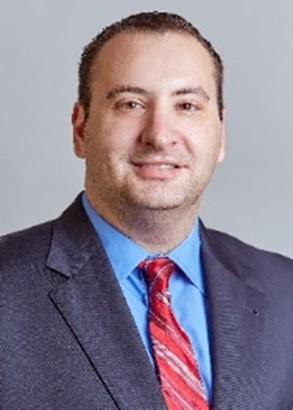According to a survey by USA Today Blueprint, the top four 2024 resolutions for Americans are saving for: a rainy-day fund, retirement, their kids’ education and a big purchase. Paying down credit card debt rounds out the top five items on Americans’ wish list.

For some UCC ministers, the dream of being debt-free is right around the corner, but for others, that goal may be years away. Regardless of where you are on your financial journey, here are a few steps you can take to help you pay down your debt, so you can focus on your other financial goals.
- Create a budget: The first step to paying down debt is understanding where your money goes. Create a budget that includes your monthly expenses and income and identify areas where you can cut back on expenses.
- Pay the minimum but aim for more: Make a list of all your credit card debt including the balance, interest rate, and minimum payments. Pay the minimum balance on all your credit card debt, and aim to make additional payments towards the credit card that carries the highest interest rate. When you pay off the first credit card balance, allocate those additional payments to the next credit card on your list. Rev. Zack Jackson, Pastor, Open Table UCC in Pottstown, PA, shares his story about prioritizing and paying down debt. Read more here.
Alternatively, some people make additional payments on the credit card with the lowest balance. Focusing on the lowest balance is helpful because you can see progress quicker. Consider speaking with a Fidelity Retirement Planner, a free service provided by your partners at the Pension Boards, (1.800.642.6543, from 8:30 a.m. to 5:30 p.m., Mon-Fri.) to help you determine the best course of action for your financial situation. - Consider debt consolidation: If you have multiple debts with high interest rates, consolidating them into one loan with a lower interest rate may help you save money and simplify your payments. Consider fees when consolidating your debt. Also, if you are a homeowner, weigh the positives and negatives before taking a Home Equity Loan. A Home Equity Loan may offer you a low interest rate compared to a credit card, but it could also put your home at risk if you become unable to pay it back.
- Negotiate with creditors: If you’re struggling to make payments, consider negotiating with your creditors to see if you can reduce your interest rate or work out a payment plan that fits your budget. Get an offer from creditors in writing before agreeing to a plan.
- Avoid taking on new debt: While you’re working on paying down your debt, try to avoid taking on additional debt. This takes discipline, but it’s key to staying on the course.
Take action. Create a debt pay-down plan on Fidelity Full View. Go to Fidelity NetBenefits® > Plan and Learn > Manage Overall Finances.
Remember, paying down debt takes time and effort but it’s worth it. By following these tips and staying committed to your goals, you can become debt-free and achieve your goal.
Additionally, if you are an authorized minister and an emergency arises that puts you in financial hardship, you may be eligible for an Emergency Grant made available through gifts to the Christmas Fund. Send an email to [email protected] to speak to a representative about grant eligibility and how to apply.
You may also want to consider applying to the Ministers' Financial Vitality Initiative, a three-year personal finance program that offers no-cost access to a financial planner, financial planning tools, and incentive grants to assist in the relief of educational or other debt. To learn more, send an email to: [email protected].

